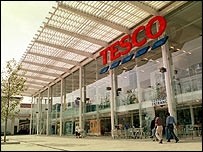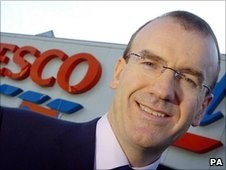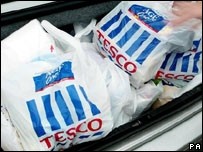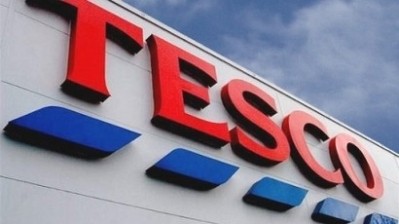Tesco 'needs to make business more fun'

However, the tectonic plates are clearly moving across retail and all the multiples recognise they need to raise their game. This probably explains their increasing emphasis on customer service, the fresh food category and convenience stores.
For Tesco, in particular, alarm bells really began to sound when it issued its shock profit warning at the start of the year.
Thus, it was with some relief that Tesco's final results for 2011/12, published in April, showed the group's profits at £3.61bn slightly ahead of analysts' expectations.
Modernised brands
The initial response from Dr Clive Black, director and head of research at stockbroker Shore Capital, was to welcome Tesco's announcement that it would renew its focus on the UK, with a £1bn investment. Fresh food, more welcoming stores, better prices and promotions, modernised brands, and improved customer communication, will be key themes. Black also welcomed the decision to cut group capital expenditure from £3.8bn to £3.3bn.
Such repositioning by Tesco and others will inevitably have huge implications for the UK's food and drink firms particularly own-label suppliers, which will be expected to play their part in helping their retail customers raise their game in the changing commercial and consumer environment.
News of British Retail Consortium-Nielsen data for shop price inflation, which revealed food prices rose from 4.2% year-on-year in February to 5.4% in March, driven primarily by rising energy costs, will also inevitably have an impact.
Black laid some of the blame for Tesco's "lost focus on its core market" on former boss Leahy. He suggested that, to turn things around, Tesco needed to restore confidence among investors building on the six priorities set out by Clarke last year.
Underperformance
"Clearly, given the recent underperformance, there is expected to be much attention on the 'core chain'," said Black.
Black criticised some of Tesco's marketing strategies and what he saw as its concentration on value above broader product appeal.
"Tesco, therefore, has lost some of its broad appeal and, in trying to be everything to everyone, increasingly became nothing to a whole lot of people," reported Black. "That potential brand damage is possibly the most serious issue facing management." It is a warning that other retailers and their suppliers would do well to heed.
He welcomed the modernisation of Tesco's Value sub-brand, but said that, in the longer term, Clarke needed to make Tesco's core food offering "more interesting" via greater innovation. Black also called for Tesco's Finest range to be re-engineered to establish it as a truly premier, high-quality offering. "In essence, we are challenging Tesco's management to make the business more interesting and more fun," he reported.
















